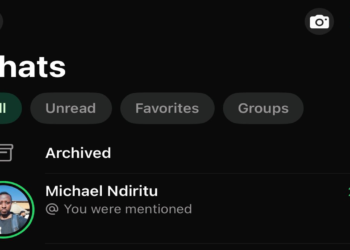Earlier this year, we covered Communities, a feature that Meta announced for WhatsApp which would aid people to participate in larger group discussions. Unlike WhatsApp Groups, Communities would have support for more features including file sharing (up to 2 GB), 32-person group calls, emoji reactions, admin tools, and moderation controls among other things.
Fast-forward to November, and WhatsApp has finally rolled out Communities to the public after a trial run done in over 50 organizations in 15 countries to ensure they have enough feedback that the new feature is functioning as intended.
At its heart, Communities are intended to help organizations, clubs, schools, and other private groups more effectively communicate and stay organized. Think for example of a Community consisting of football fans, in such a community, the admin might then create subgroups where fans of different teams will discuss their issues away from the focus of the larger community. Communities will support groups of up to 1,024 users and offer end-to-end encryption.
Communities are created with one main announcement group which will notify everyone of the most important messages. Members, on the other hand, can only chat in the small subgroups that the admin has approved. This ensures that members are not continuously disturbed by messages and alerts about the group or events that they are not interested in.
While Facebook Groups and WhatsApp Communities now share some functionalities, a key difference is that Facebook Groups are largely comprised of people who do not know each other but share a common interest, while on WhatsApp Communities, members are more likely to know each other outside the platform since WhatsApp relies on users’ phone numbers.
It is important to note that phone numbers will not be visible to the wider community, however, admins and others in the same subgroups as you will be able to view your number. WhatsApp says that this is to balance users’ demand for privacy with the need to allow fellow group members to contact you.
Furthermore, unlike on other platforms, WhatsApp Communities will be hidden, meaning that you will not be able to search and discover communities as you would do on Telegram or Facebook for groups and channels. You have to be invited in order to join a WhatsApp Community.
The company was keen to touch on encryption as one of the key aspects that make Communities a better alternative than other platforms in the market, “The alternatives available today require trusting apps or software companies with a copy of their messages – and we think they deserve the higher level of security provided by end-to-end encryption,” reads an excerpt from WhatsApp’s blogpost
WhatsApp is also aware that some parties are bound to take advantage of Communities to engage in illegal or dangerous behaviour. The company says it will rely on the available unencrypted information about a community like its name, description and user reports to determine if action is needed.
Those found in breach of WhatsApp terms and conditions will have their community disbanded, and the individual members and admins will also be banned from the platform, depending on the severity of the breach.
The Meta-owned company has already started the rollout of the Communities feature and expects to reach all its users worldwide over the next few months.










